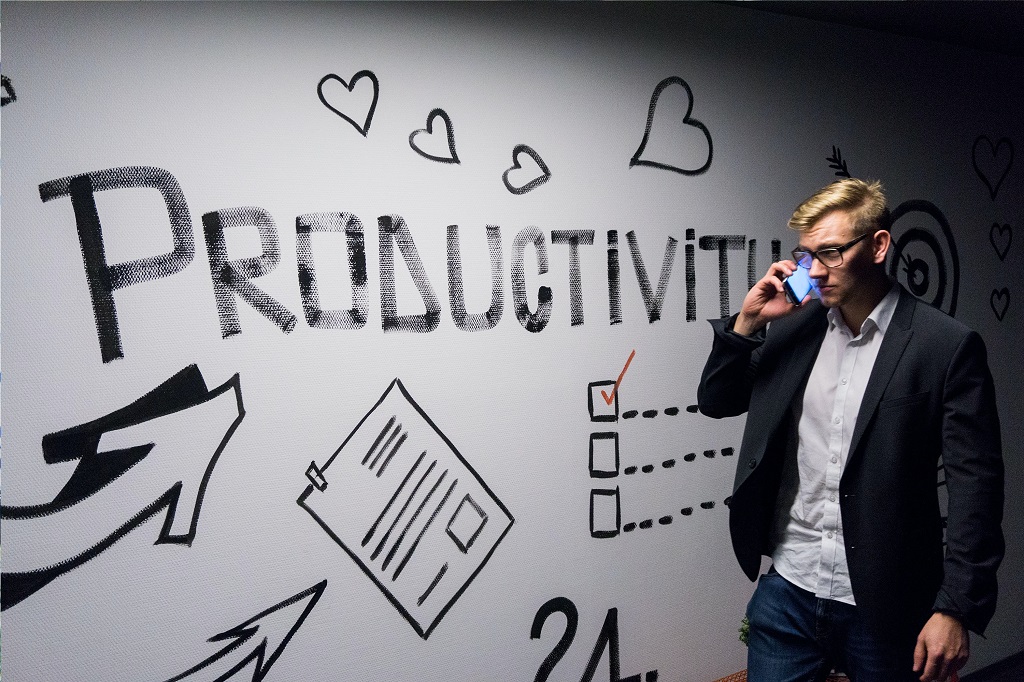This also happens with services for monitoring employee performance, but in practice this approach - without adapting to a remote format - does not lead to anything good.

Photo - AltumCode - Unsplash
Unusual remote control
In many companies, when signing an employment contract, employees agree that their productivity will be assessed using technical means - for example, video cameras and telematics. Such solutions, being competently implemented offline , really bring benefits. One of the largest Western retailers has been using a sensor system in the checkout area for several years . It analyzes conversations between customers and cashiers using speech recognition technologies. This is how the store determines how well employees are doing their job to improve customer satisfaction. Another online retailer uses sensors to analyze the movements of warehouse employees and optimizes their routes.
, - — . , — , -, , .
In addition to these tasks, managers increasingly require remote controllers to install keyloggers and all kinds of time trackers on personal computers. Some executives go further and use special software to monitor employees' desktop and monitor statistics on time spent in various applications. Selected examples show how far employers can go when they check with webcams whether developers, accountants and other professionals are in their workplaces.
Adaptation is needed at all levels
Often, such monitoring is carried out using conventional applications without any adaptation to new conditions and training of employees. For this reason, the developers of Zoom removed the function of assessing the attention of the interlocutor, and the authors of the project manager Basecamp refused to integrate tracking tools into their product (the service still offers a timer to track working hours, but it is controlled exclusively by the user himself).
The point is not only in the frequent lack of specialized means that could protect personnel from invasion of privacy, but in a crisis of confidence. Teamwork is a fragile thing on which employees' desire to work depends. The specialist, whose every step is monitored, will quickly lose not only motivation, but also productivity...

Photo - Andreas Klassen - Unsplash
A decade ago, scientists found that over-supervision and supervised work increases the stress levels of employees. There is also recent research on this topic - a professor at the Harvard Business School Ethan Bernstein in his scientific work argues that constant supervision of subordinates reduces their productivity, refuting the thesis put forward in the first part of the text in the example of American retail.
Even with ethical monitoring systems, you cannot ensure that performance indicators are met 100% every day, and everyone on the team works strictly 8 hours a day. It is believed that a person can be productive only for a few hours .
Cal Newport, a computer science professor at Georgetown University, has dedicated an entire book to this phenomenon, Deep Work . He argues that mechanical labor and occasional idleness save us from burnout. The best thing an employer can do is create the conditions for concentration. Demanding vigorous activity from employees is at least useless, as a maximum - it will bring their dismissal closer.
The question is open
Experts point out that tools for controlling the daily routine of subordinates are ineffective in many cases. They do not always reflect the real state of affairs and it will be possible to come up with completely transparent efficiency criteria only in streaming production. A specialist works on a conveyor belt and connects two parts together. It is easy to calculate the efficiency in this case - N manufactured units without scrap per hour.

Photo - Hitesh Choudhary - Unsplash
It will no longer be possible to apply a similar approach to more complex problems. The activities of developers, system administrators or data scientists do not lend themselves to template accounting. It is impossible to evaluate a programmer by “the number of developed features per unit of time”. This method will definitely harm the development of the company.
Keyloggers and similar tracking systems will not provide a complete understanding of the situation and will definitely not contribute to a trusting environment. Therefore, the question of choosing and adapting tools for remote work is open, but what is known for sure is that such processes should be based on the principles of transparency, mutual understanding and be accepted by the team.
1cloud.ru: